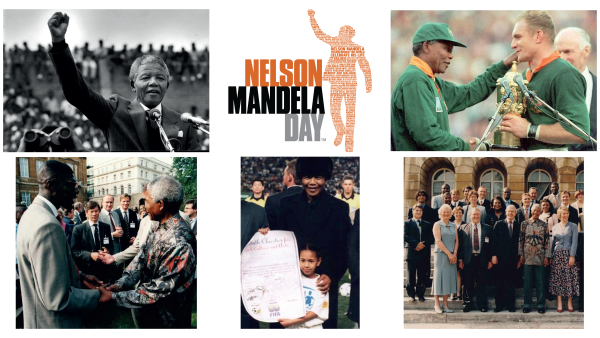In the heart of Africa, where millions of young people seek opportunities to transform their lives, a legacy is coming back to life. Rooted in Nelson Mandela’s unwavering belief in the power of sport as a tool for reconciliation and change, the Youth Charter has emerged as one of the most impactful international instruments for African youth. Since its founding in 1993—the same year Mandela laid the foundations for a democratic South Africa—this UK-based charity, accredited by the United Nations, has carried out a clear mission: to empower young people from marginalized communities through sport, arts, culture, and digital innovation. It offers not only tools for personal growth, but also a real pathway to social inclusion, education, and employment.
In 2024, more than three decades later, the Charter has issued a renewed call to action: for Africa to invest decisively in its greatest resource—its youth. Through the Community Campus model, successfully implemented in South Africa, the UK, and other countries, the organization has created safe spaces where thousands of young people find alternatives to unemployment, crime, racism, school failure, and social exclusion.
Puente hacia el futuro: África consolida su estrategia digital en GABI 2025
This community-based model, grounded in Mandela’s Ubuntu philosophy, uses sport as a universal language to promote leadership, peace, inclusion, mental health, gender equality, and climate action. It also aligns directly with the United Nations Sustainable Development Goals (SDGs), proving how global policies can be effectively translated into local contexts.
“Young people should not be seen as problems to be managed, but as leaders in the making who need opportunities,” said Geoff Thompson, founder and chair of the organization. This vision has directly impacted the lives of thousands of African youth, who, through the Charter’s programs, have gained access to education, jobs, training, psychosocial support, and safe spaces for personal and collective growth.
However, the tribute to Mandela that fuels this call also comes with a warning: the Sport for Development and Peace (SDP) movement must return to its ethical and social roots. The newly released Africa 30 Report, part of the Charter’s Global Call to Action, urges African governments to take bold leadership and integrate sport as a public policy tool that truly transforms lives. As trees planted in Mandela’s honor grow in London’s Queen Elizabeth Olympic Park, their roots symbolize something deeper: the hope seeded in every young person who, thanks to this initiative, reclaims their right to dream and to build a dignified future.
Today, the Youth Charter issues an urgent call to governments, sports federations, youth ministries, educational institutions, and communities—from the African Union to ECOWAS, SADC, and CAF regions—to strategically invest in community development through sport. Because behind every ball, every artistic expression, and every digital project, there is an African youth with talent, with a story, and with the potential to lead the change Africa needs.









